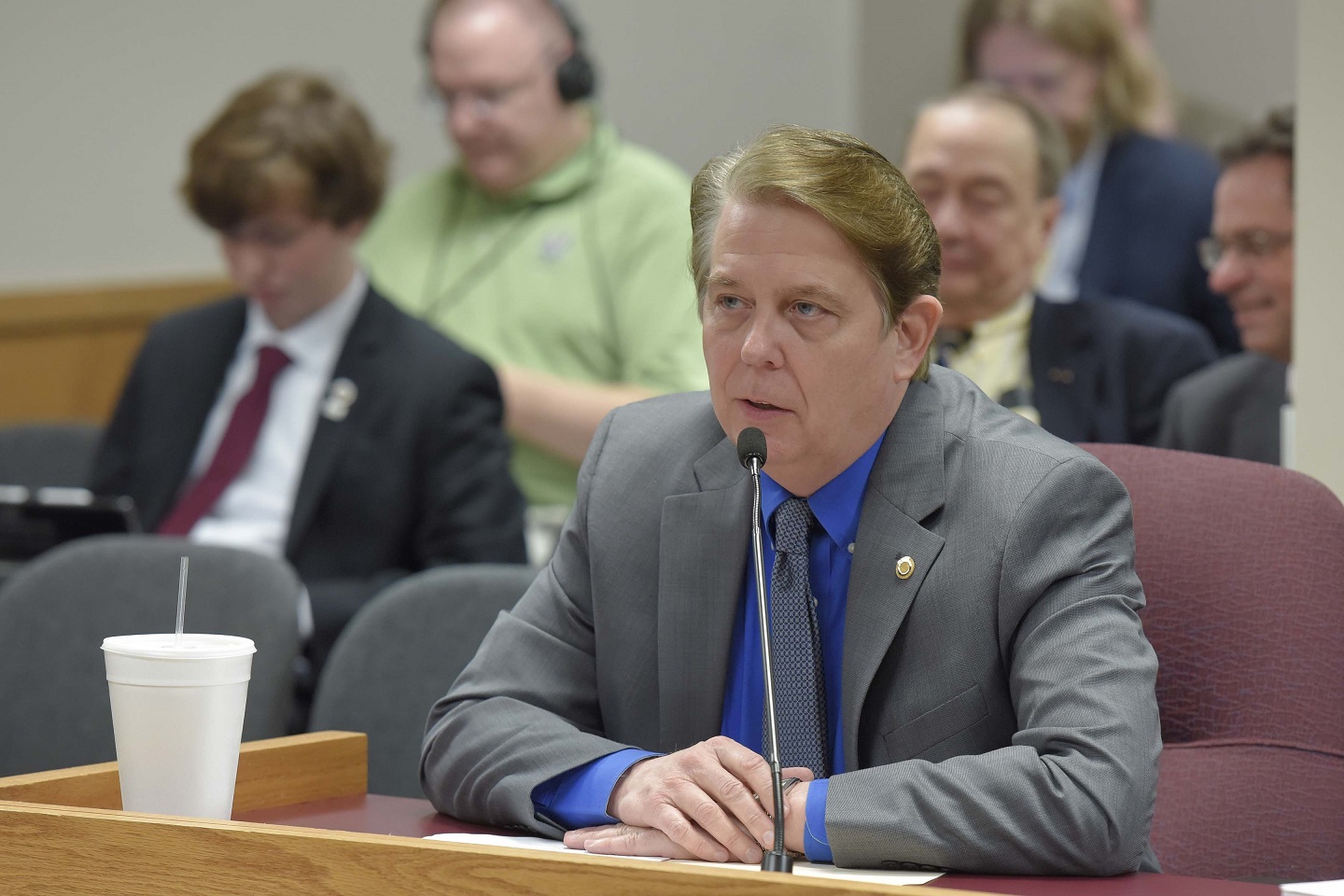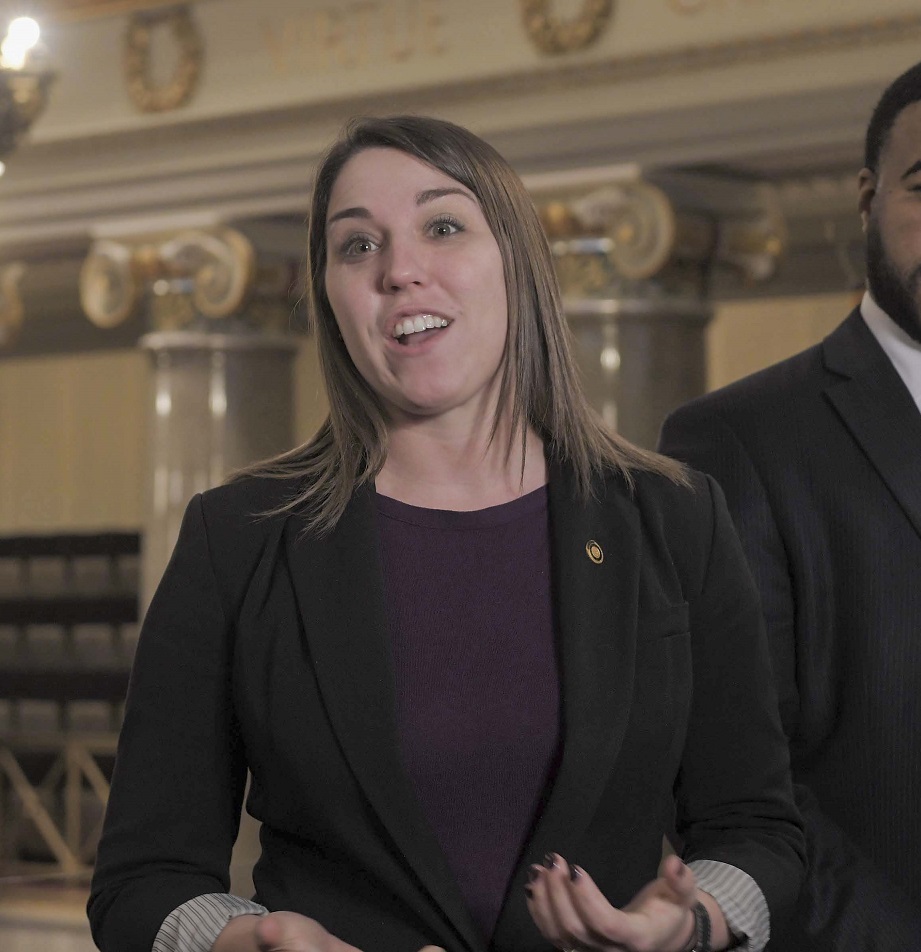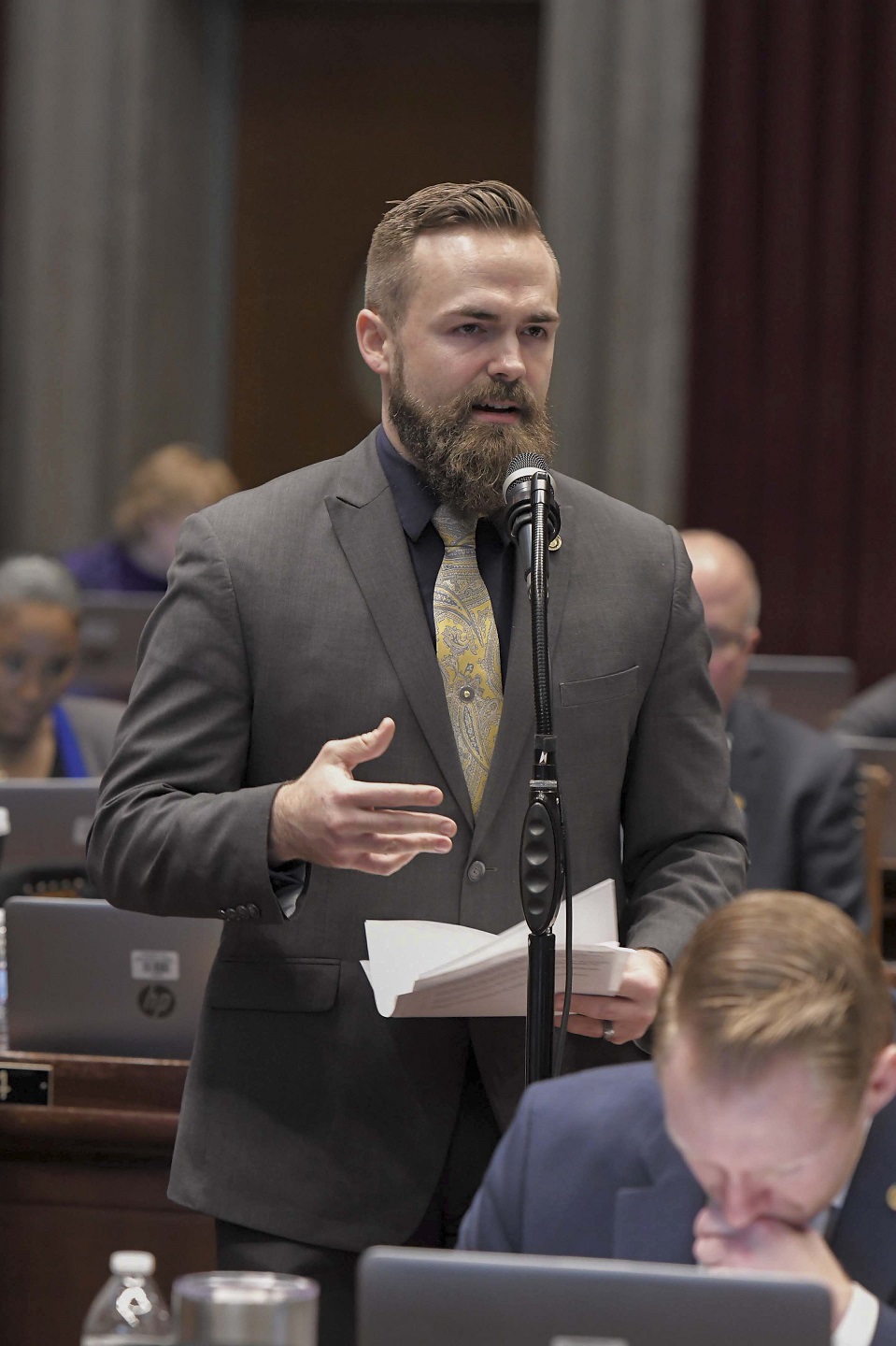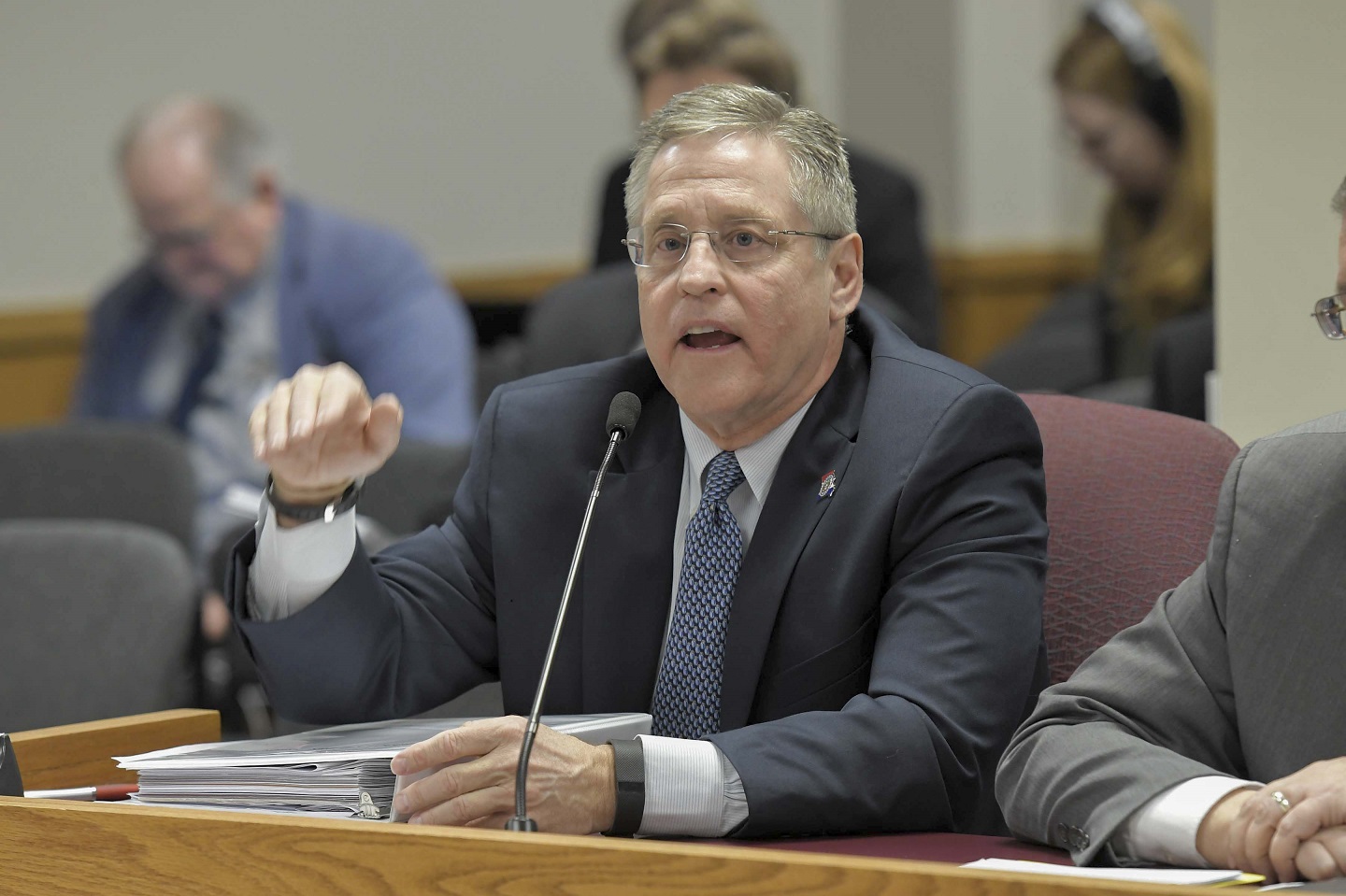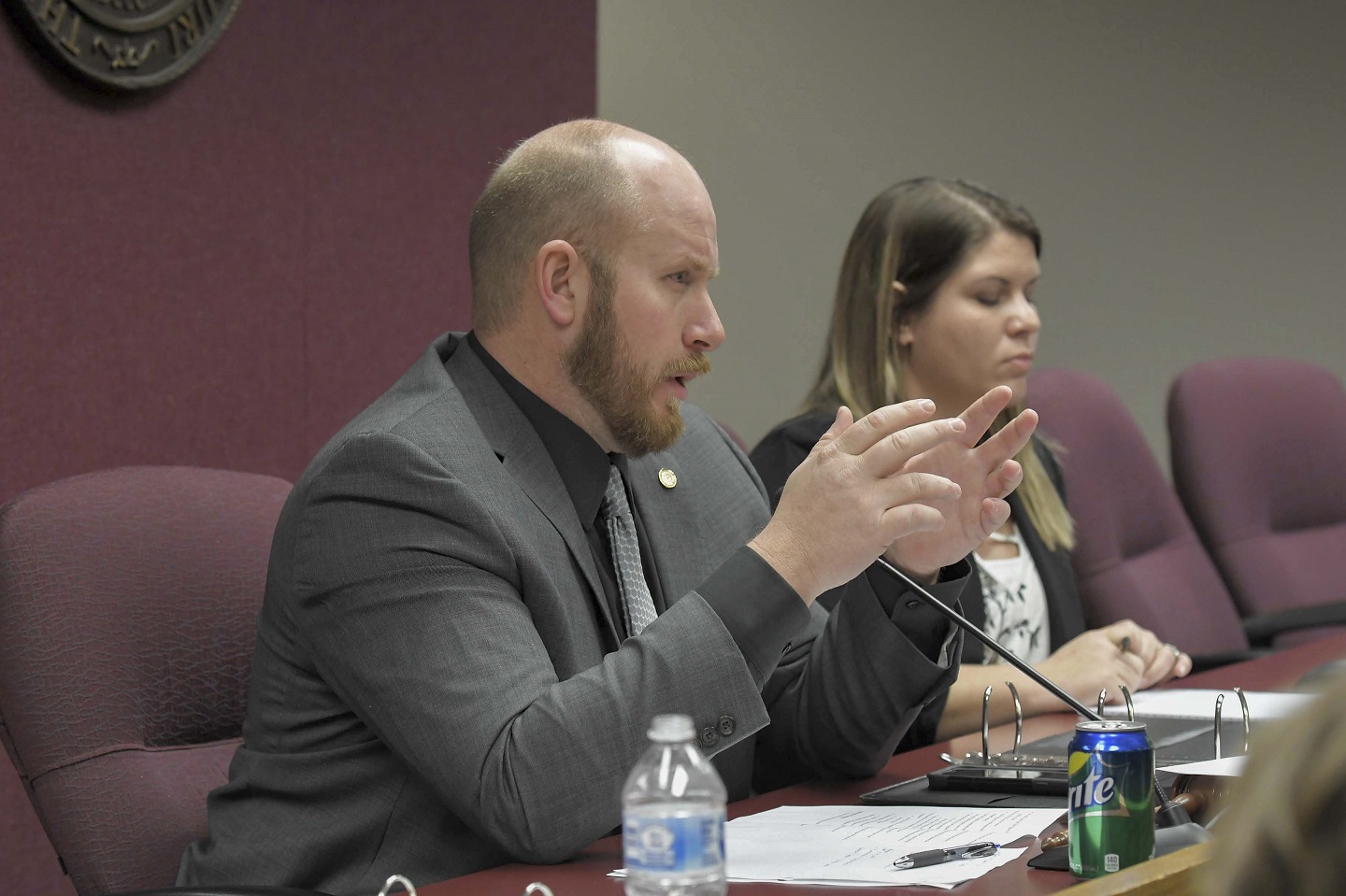A tax break for most Missourians and a restructuring of the state’s income tax brackets will likely be considered by legislators in a special session that Governor Mike Parson (R) is expected to soon call.

That’s according to House Budget Committee Chairman Cody Smith (R-Carthage), who says he’s looking forward to seeing what the Governor outlines in a plan to be aimed at helping Missourians facing high prices and high inflation. The top Democrat on the Budget Committee, Peter Merideth (D-St. Louis), says he wants a plan that goes beyond changing income taxes, so that all Missourians would be helped; not only those who pay that.
Governor Parson earlier this month vetoed a proposed $500-million tax rebate plan sent to him by legislators in May, saying he prefers a permanent tax cut. He has said he will call for a special session of the legislature to consider that cut.
Smith, who spearheaded that tax rebate plan as the best proposal thought possible at the time, said he would also prefer a permanent cut. He spoke to Parson on Tuesday to get a better idea of what the governor might propose.
“We are busy now collaborating with the senate and the governor himself to try to find a starting point and then from that point the legislature will take over and will hopefully put forth a good product, at the end of the day, for the governor to sign,” said Smith. “It’s important that we try to keep this simple and try to make it as impactful to as many Missourians as possible. I think the income tax is the best way to do that, and trying to simplify the tax code in the process I think is also a worthy goal.”
Merideth said he and fellow Democrats were glad that the rebate plan was vetoed, but he’s concerned that a cut to the income tax won’t help the Missourians who need help the most.
“That said, our income tax brackets are completely out of date. We haven’t had updated brackets in like 100 years. Democrats have actually long advocated for updating those to a more progressive tax rate structure. Now, we have yet to see what that proposal’s going to look like but there’s a path that we could get on board with,” he added. “Democrats are generally supportive of relief for those that make the least and generally resistant to relief for those that are doing just fine, at the expense of our long-term budget.”
Smith agrees that the state’s brackets are outdated and should be revised, if not eliminated, and doing so would help all income earners.
Merideth thinks permanently cutting the income tax right now is not a good idea. He said the state is in a great position with revenue right now, but the next time there’s a downturn, cuts made now could put the state in a bad position.
The governor has expressed confidence that Missouri’s good fortune will continue, and Smith agrees.
“I would guess that we may have a general revenue surplus in excess of $2-billion by the time we come back to the next legislative session and that is just unprecedented … we’ve got federal money set aside for Medicaid, we’ve got general revenue dollars sitting in the state’s treasury for all purposes, and I think there’s never been a better time to cut taxes and still be able to protect the priorities that we have in the budget,” said Smith. “I think we’re probably looking at 3 to 5 years where we are very well situated even after a tax cut.”
Smith said while the state is enjoying increased revenues and never-before-seen surpluses, Missourians are dealing with high inflation, high gas prices, and other factors that are causing many to struggle. He said this is the right time for the legislature to do something to help.
Merideth said he and other Democrats would also like to see the legislature talk about things besides the income tax, such as eliminating taxes on groceries and other essentials.
The governor has said he is also planning to have the legislature consider six-year extensions to tax credits under the Missouri Agriculture and Small Business Development Authority. He vetoed a bill that would have extended them by two years.
Dates for a special session have not been set.
